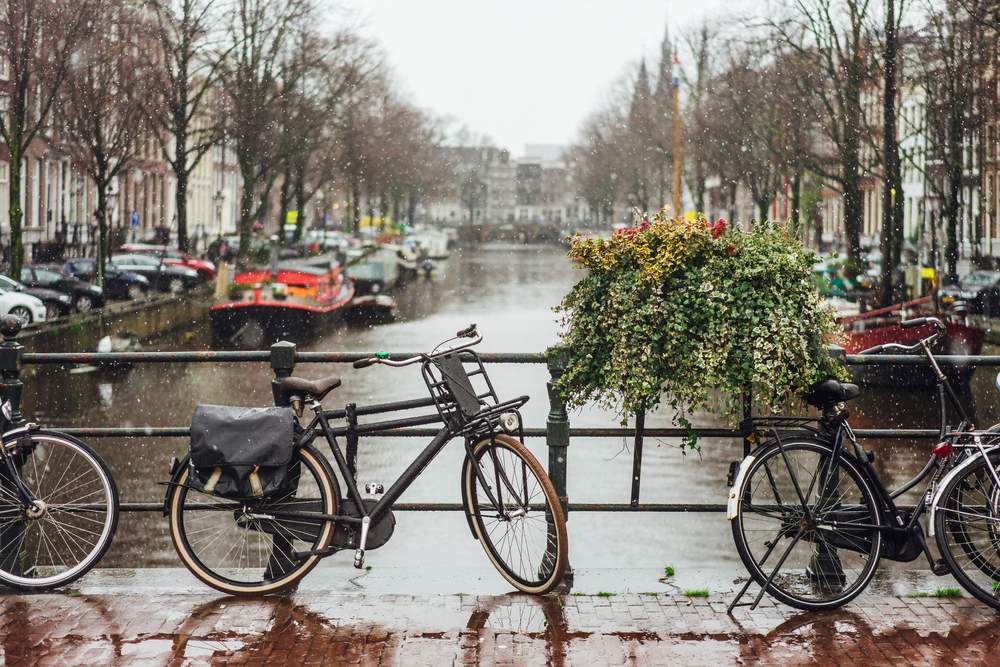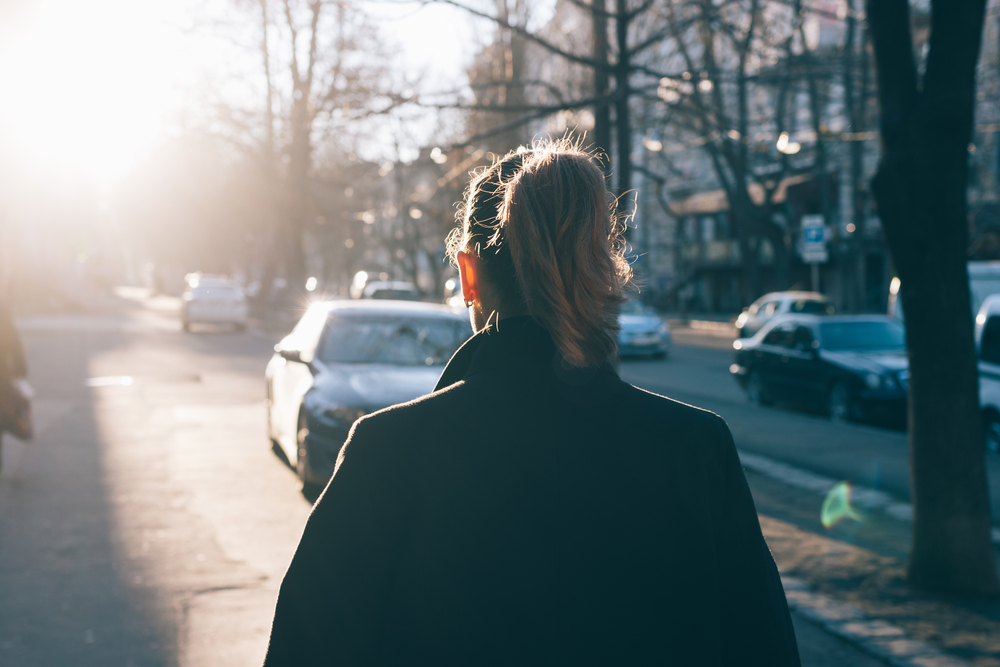When winter rolls around, the days become shorter and the nights longer. Here in the Netherlands, that tends to mean only one thing: we’re all scrambling to catch those sun rays when we can. (A difficult enough task at any time of year in this country!)
Dutch weather: it’s dark, gloomy, rainy, windy, and subject to complaints all year around. But did you know that lack of sunlight can be detrimental to one’s health? Experts are rallying to bring attention to its effects.

Indeed, most people living in the Netherlands are not getting enough sunlight, as they spend much of their time indoors (let’s face it, it can get too cold to go outside).
The result? The amount of light most of us get is just not enough to keep up with daily life.
How does a lack of light affect our health?
In short, a lack of sunlight ruins our quality of sleep and makes us feel more sluggish. In more severe cases, it could lead to seasonal affective disorder (SAD) or seasonal depression.
But why does sunlight matter so much?
Well, in our brains, we all have an organ called the hypothalamus, which maintains homeostasis (balance and stability) and regulates the hormonal balance of the body.
READ MORE | Isolation, mental health and the Dutch weather: an interview with a psychologist in Leiden
When we don’t receive enough sunlight, this organ stops functioning properly, causing a hormonal imbalance, which in turn can lead to symptoms of depression.
More specifically, a lack of sunlight can lead to a drop in serotonin levels — the brain chemical that affects your mood.
Melatonin levels (the hormone that monitors your sleep cycles) are also affected by the change in seasons since darkness produces more of the hormone, directly inducing sluggishness (now that explains a lot…).
But if you think this means that taking an extra afternoon nap will help you beat the seasonal depression, we’re sorry to say that that won’t cut it.
“It is not so much about sleeping longer, but about the quality of sleep,” chronobiologist Marijke Gordijn from University Medical Center Groningen tells RTL Nieuws.
READ MORE | How to survive the Dutch winter: weather, clothing, and more
“How fast you fall asleep, how often you wake up during the night and how deep you sleep; the quality of your sleep has a huge effect on your body.”
How does poor-quality sleep affect your health?
The link between sunlight, sleep quality, and depression is undeniable.
Gordijn explains, “There are direct connections between your eyes and the part of the brain that controls your mood. Insufficient light influences your mood negatively and can even lead to depression.”

But a lack of (high-quality) sleep can also lead to numerous other health risks — some of which can keep you up at night (ironically).
For example, Gordijn says that hormonal imbalances caused by lack of sunlight and proper sleep increase the risk of obesity.
In general, depression has also been associated with the worsening of existing (chronic) diseases, headaches, loss of libido, and digestion issues, among other things. Ouch. 😬
How much light do we need?
Gordijn and her colleagues conducted three studies to establish how much sunlight we would need in a day to function well.

According to the Working Conditions Act, your work desktop needs to emit light of 500 lux. Gordijn, however, disagrees. She states workers should be exposed to at least 1000 lux, which is equivalent to the light we get on a cloudy day.
We also know that the employees of offices where artificial light is designed to simulate daylight sleep better, she says. They also perform better, as they are in better spirits.
Three ways to avoid seasonal affective disorder (SAD)
Gordijn says you have to find ways to get the light fix your body requires to function at an optimum level. Here is her advice to avoid SAD:
- 🏃♀️ Go out for a walk or jog for at least half an hour every day (she recommends going in the morning between 8 AM and 9 AM if you can).
- ☀️ Try sitting close to a window to bask in any natural light. If that is not possible, get stronger lamps that mimic sunlight.
- 💪 Finally, brave the cold, get out there and stay active. Layer up and get those muscles moving even if your brain is telling you otherwise!
Living with seasonal depression in the Netherlands can be hard. How do you cope with it? Let us know in the comments below!





I didn’t think that the lack of light could affect the body and the mental state so much. But after the first winter, I realized this. Morning walks really help. Especially when the mornings are sunny – if you’re lucky, you can get a few of those in a week. It was because of this sickness and SAD that I stopped liking winter. But spring always comes and changes things.
If you’re northern European, this is the status quo. However, that doesn’t mean that you should accept it. There are things you can do that will help to ease the winter blues. Some good pointers here 👏
I use lunch breaks in the office for 30 mins walks, if not possible I do it after work. Having longer walk in the evening also helps me sleep better. I also go to the office everyday (although I have to travel long), the windows are bigger there and I sit next to one. I think is important to have face to face connections with colleagues in the office instead of closing at home doing online meetings (when this is possible).
Between 8am and 9am, there is not even light. I am feeling up, and motivated, and ready to go for a run right now, but it being dark outside still at 8am doesn’t help. One more coffee, and then a run…